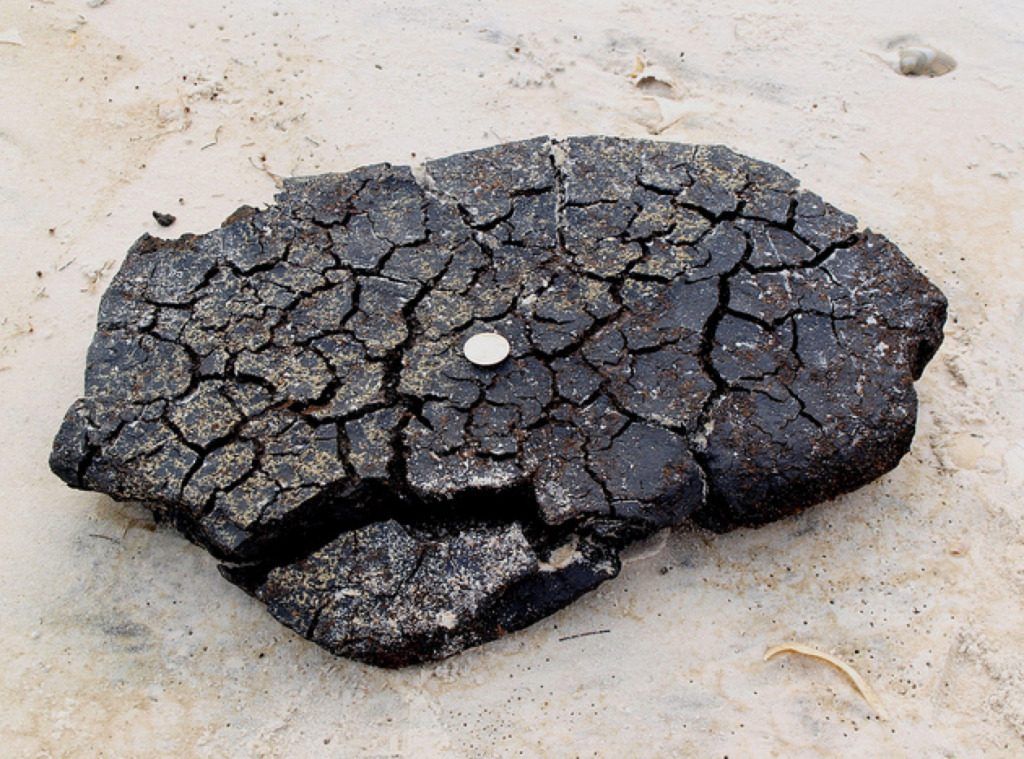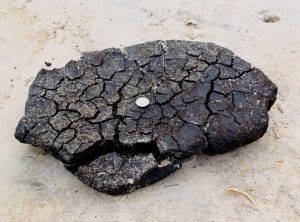Tarry gunk still evident on Gulf beaches

More than two and a half years after the disastrous Deepwater oil spill by BP, tarry, gunky deposits of what appears to be dried oil are still all too evident on stretches of Northwest Florida gulfshore beaches.
 “This is atrocious,” reports RT Campskunk, a fulltiming RVer in a Roadtrek 190 from St. George Island, Florida. “It's just a shame. These were the best beaches in the country. I was used to tar on the beaches out in Texas and Louisiana where all the wells are, but this is the first time I have seen it in Florida.”
“This is atrocious,” reports RT Campskunk, a fulltiming RVer in a Roadtrek 190 from St. George Island, Florida. “It's just a shame. These were the best beaches in the country. I was used to tar on the beaches out in Texas and Louisiana where all the wells are, but this is the first time I have seen it in Florida.”
Campskunk walked long stretches of the beach around the Dr. Julian G. Bruce St. George Island State Park and found numerous clumps of the stuff. He took lots of photos like this one. That's a quarter on top of the tarry deposit, to give us an idea of its size.
You can see lots more of his photos on his Flickr photostream.
Hurricane Isaac last fall was blamed for fresh oil deposits showing up in Louisiana But that doesn't explain the ones Campskunk spotted this week. Some are four inches thick.
A spokesperson for the U.S. Department of the Interior said in September 2012 that an estimated 1 million gallons of oil from the Deepwater Horizon spill were hiding in the underwater sediment off the coast of Louisiana.
St. George Island is a 22-mile, thin barrier island in Northwest Florida, just southeast of Panama City near the Panhandle.

ive found quite a bit of this black oil deposit stuff here in wales, united kingdom. so i guess your not alone , its travelled very far . i thought it might be of value,
maybe not this century eh .
anyway , im glad i know what it is now.
i found this stretch of residue stretching for maybe 300-400 yards along this barrier island. it’s dry and crumbly, as you would expect from spending almost three years in the sun, and probably doesn’t adversely affect wildlife or get on your feet like fresh tar, but it’s still a jarring note in your beach experience. the gulf has a gyre, like the north pacific – an area of circulation created by the currents, and maybe this stuff has been out there spinning around the whole time until some errant event sent it shoreward.